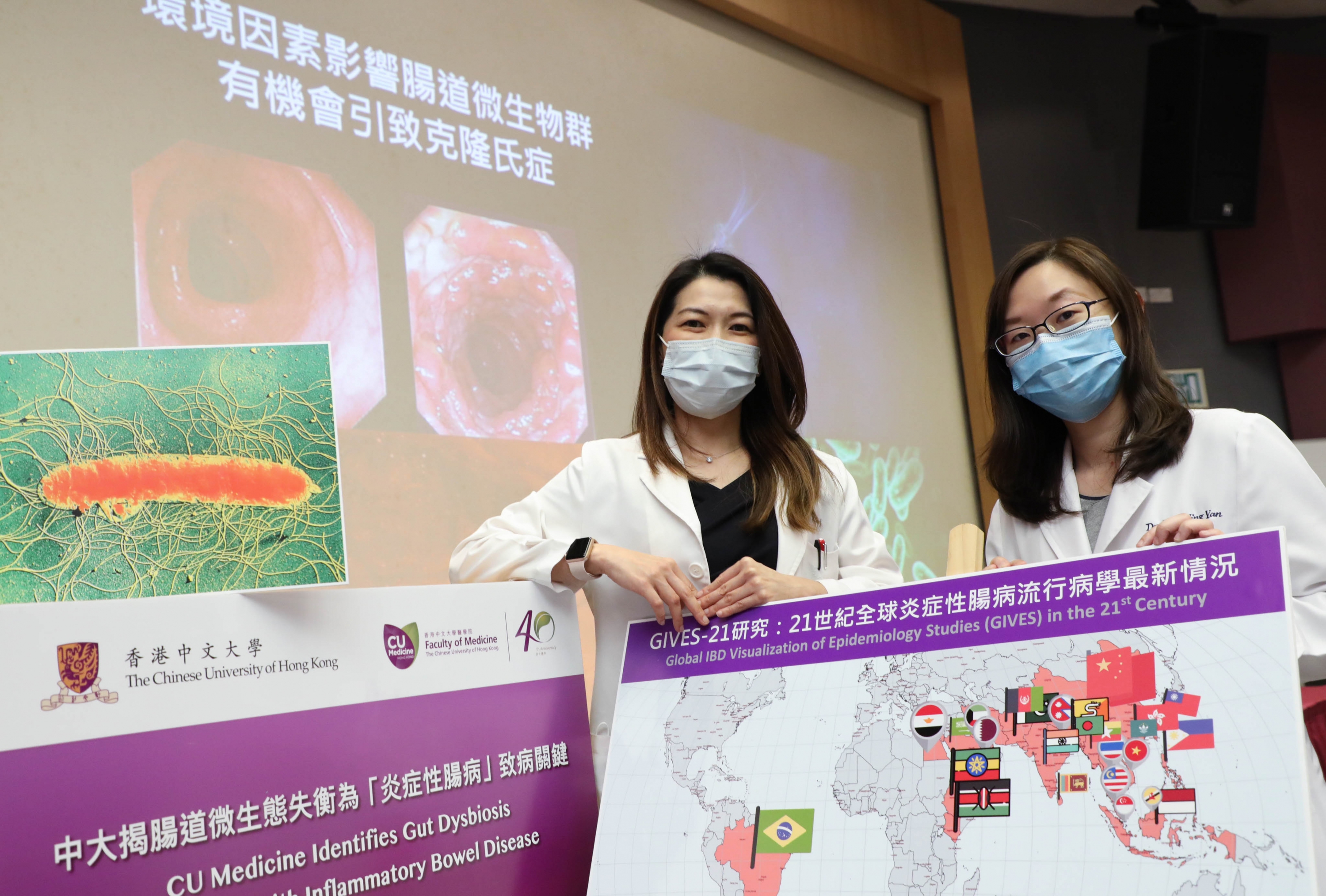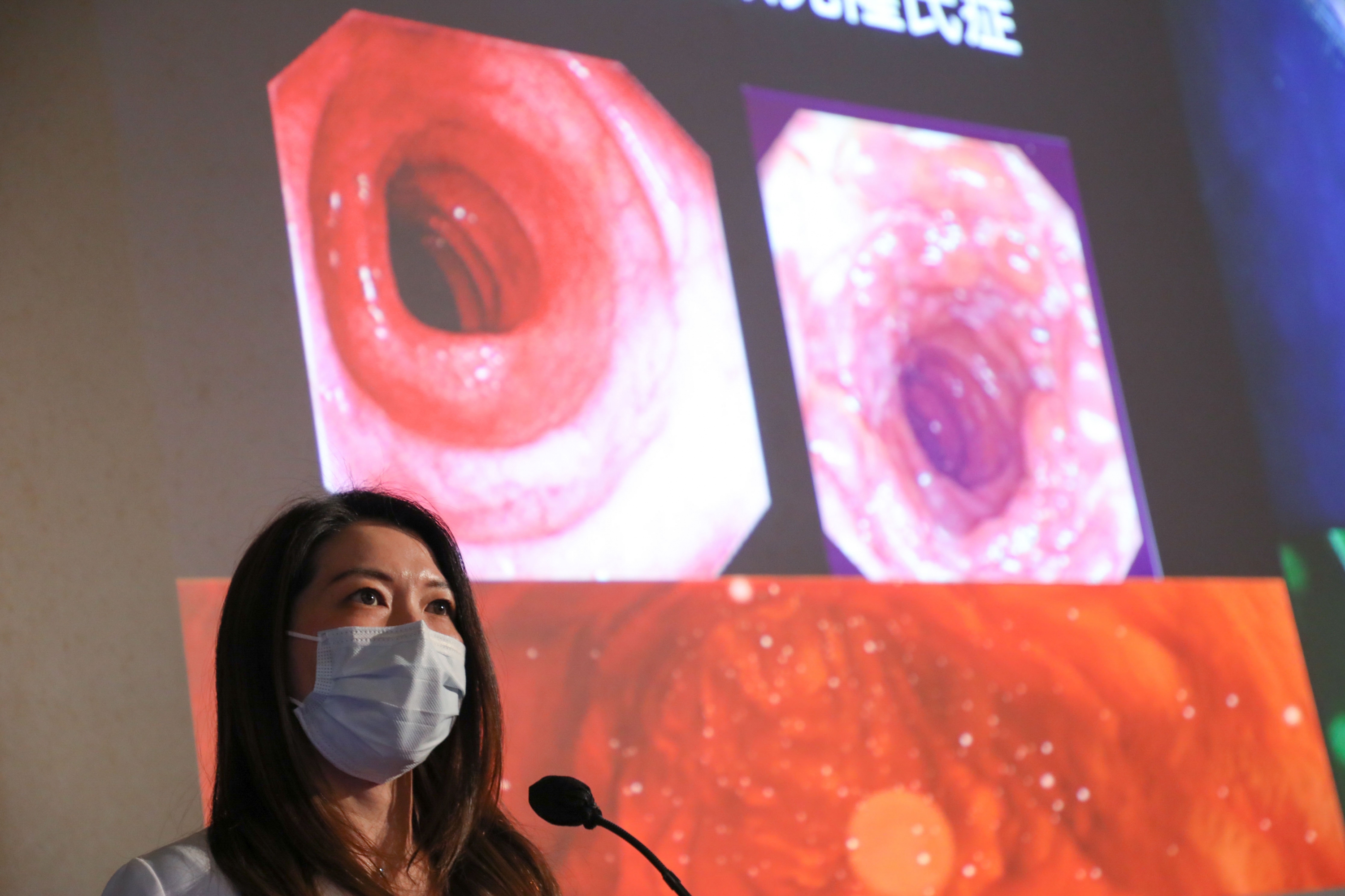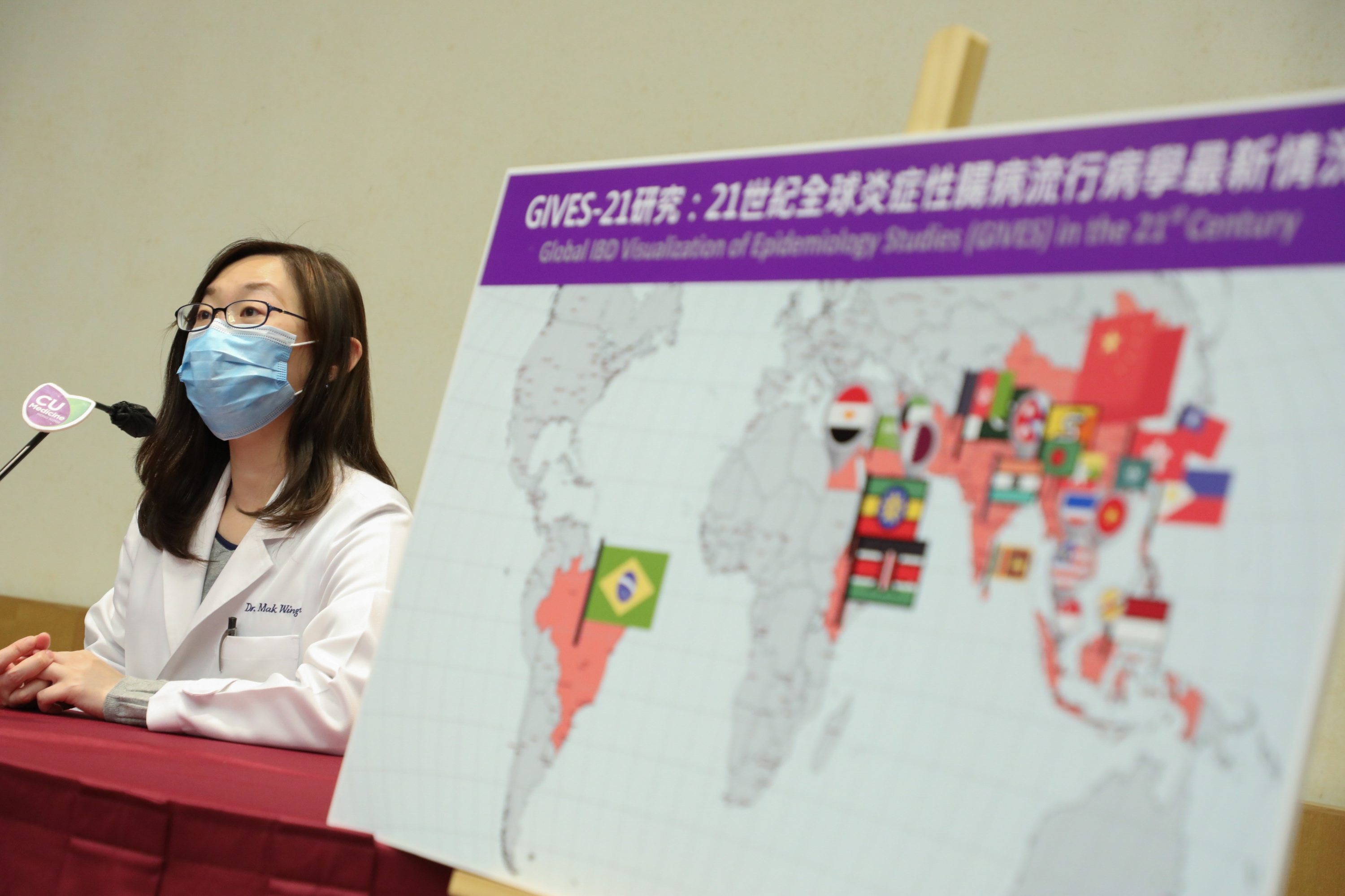News Centre
CU Medicine Receives USD 2 Million from The Helmsley Charitable Trust to Partner with University of Calgary to Create a Global Repository on the Epidemiology of Crohn’s Disease
The Faculty of Medicine at The Chinese University of Hong Kong (CU Medicine) received a USD 2 million grant (equivalent to approximately HKD 15.5 million) from The Leona M. and Harry B. Helmsley Charitable Trust (The Helmsley Charitable Trust) in New York to define the global burden of inflammatory bowel disease (IBD) and to identify environmental risk factors accounting for the global rise of IBD. Global IBD Visualization of Epidemiology Studies (GIVES) in the 21st Century (GIVES-21) is a cross-boundary collaborative research project among CU Medicine, The University of Calgary, and 29 newly industrialized countries.
CU Medicine is the first research institute in Asia to be supported by The Helmsley Charitable Trust and this is the third research grant awarded to it by Helmsley. In recent years, CU Medicine researchers have worked tirelessly to understand the pathogenesis of IBD. Their recent studies have highlighted the potential for bacteria associated with IBD and the intake of food additives to trigger bowel inflammation. These findings offer hope for the development of new treatments to promote patient recovery and remission.
The GIVES-21 collaboration aims to identify environmental risk factors associated with IBD development in 29 newly industrialized countries around the world
Professor Siew Chien Ng, Professor of the Department of Medicine and Therapeutics at CU Medicine, said, “We are tremendously grateful to the generous support from The Helmsley Charitable Trust. With the rapidly rising incidence of Crohn’s disease (a major sub-type of IBD) in our society, there is a pressing need to define the disease burden and identify causative factors of the disease and to develop new therapies for patients. The bacteria in our gut are likely to be critical to disease development. Understanding the mechanisms underlying Crohn’s disease pathogenesis will enable us to develop optimal bacterial modification therapies and bring us closer to finding cures for Crohn’s disease.”
Experts from CU Medicine and The University of Calgary will aim to define the epidemiology of and identify environmental risk factors associated with IBD development in 29 newly industrialized countries in Asia, South America, and Africa. For the first time, an interactive online map will be set up for visualising the disease patterns and evolution of IBD across the globe.
“The Helmsley Charitable Trust is committed to supporting research that increases our understanding of Crohn’s disease and, ultimately, the ability to prevent or cure the disease,” said Dr. Shefali Soni, Program Officer at The Helmsley Charitable Trust. “CU Medicine is a leader in IBD research, and we anticipate that the open access epidemiologic data repository created through the GIVES-21 collaboration will enable breakthrough findings, advancing what we know about the causes of Crohn’s disease and how we might prevent it.”
Dr. Joyce Wing Yan Mak, Assistant Professor of the Department of Medicine and Therapeutics at CU Medicine, added, “The goal of the collaboration is to drive down the incidence of IBD by eliminating the risk factors. We hope our findings will serve as guidance for governments around the world to innovate their current healthcare delivery systems to address the threat from the increasing incidence of IBD.”
CU Medicine identifies specific gut microbiota changes associated with IBD
Crohn’s disease is a life-long disabling condition of the gut that is often diagnosed in childhood or early adult life. It is becoming increasingly common worldwide and is believed to be predisposed by abnormal microbes’ colonisation.
Gut microbiota are one of the important factors in IBD development. Changes in the composition of the intestinal bacterial community and reduced microbial richness and diversity have been observed in patients with Crohn’s disease. With prior support from The Helmsley Charitable Trust, researchers from CU Medicine and their collaborators discovered a key bacterium associated with Crohn’s disease which induced dysbiosis and bowel inflammation as part of the Eastern Inflammatory Bowel Disease Gut Microbiota (ENIGMA) studies. This has created a unique opportunity for manipulation of the gut microbiota for potential prevention and therapies in Crohn’s disease.
Professor Ng added, “Another recent finding in the ENIGMA project, also supported by The Helmsley Charitable Trust, has demonstrated that Crohn’s disease patients were more likely to have consumed ultra-processed food in early life in comparison to healthy adults. This indicates a likely trigger for disease initiation. Higher recent and current food additive intake in patients is likely to affect the gut microbiota in an unfavourable way and serve as a driver of ongoing inflammation. This provides us more clues to prevent the onset of the disease or its recurrence.”
The GIVES-21 project will have a long-lasting impact by synthesizing the current knowledge of the burden of Crohn’s disease and projecting the future global burden. “We will aim to develop a worldwide network of IBD experts and enable epidemiological research in regions with a sparsity of data. The generous support from The Helmsley Charitable Trust provides us a unique opportunity to understand and realize new ways to translate epidemiologic data and microbiome risk factors with real impact for our communities challenged by this debilitating disease,” concluded Professor Ng.
About the Helmsley Charitable Trust
The Leona M. and Harry B. Helmsley Charitable Trust aspires to improve lives by supporting exceptional efforts in the U.S. and around the world in health and select place-based initiatives. Since beginning its active grantmaking in 2008, Helmsley has committed more than $2.6 billion for a wide range of charitable purposes. Helmsley’s Crohn’s Disease Program supports impactful ideas and mobilizes a global community committed to improving the lives of Crohn’s disease patients while pursuing a cure. For more information, please visit helmsleytrust.org.
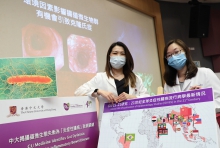
CU Medicine received a HKD 16 million grant from The Helmsley Charitable Trust in New York to launch the Global Inflammatory Bowel Disease (IBD) Visualization of Epidemiology Studies in the 21st Century (GIVES-21). Recent studies of the team have highlighted the potential for bacteria associated with IBD and the intake of food additives to trigger bowel inflammation. These findings offer hope for the development of new treatments to promote patient recovery and remission. (From left) Professor Siew Ng and Dr. Joyce Mak from the Department of Medicine and Therapeutics at CU Medicine.
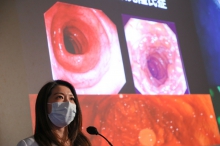
Prof. Siew Ng states that Crohn’s disease patients have higher level of Proteus mirabilis in their gut which can lead to dysbiosis. This upsets the immune system of the patients and results in bowel inflammation. This finding provides the team more clues to prevent the disease onset or its recurrence.
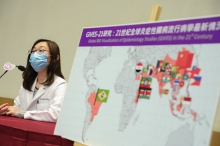
Dr. Joyce Mak remarks the GIVES-21 project is a cross-boundary collaborative research project among CU Medicine, The University of Calgary, and 29 newly industrialized countries. The goal of the collaboration is to eliminate the risk factors and to serve as guidance for governments around the world to address the threat from the increasing incidence of IBD.
